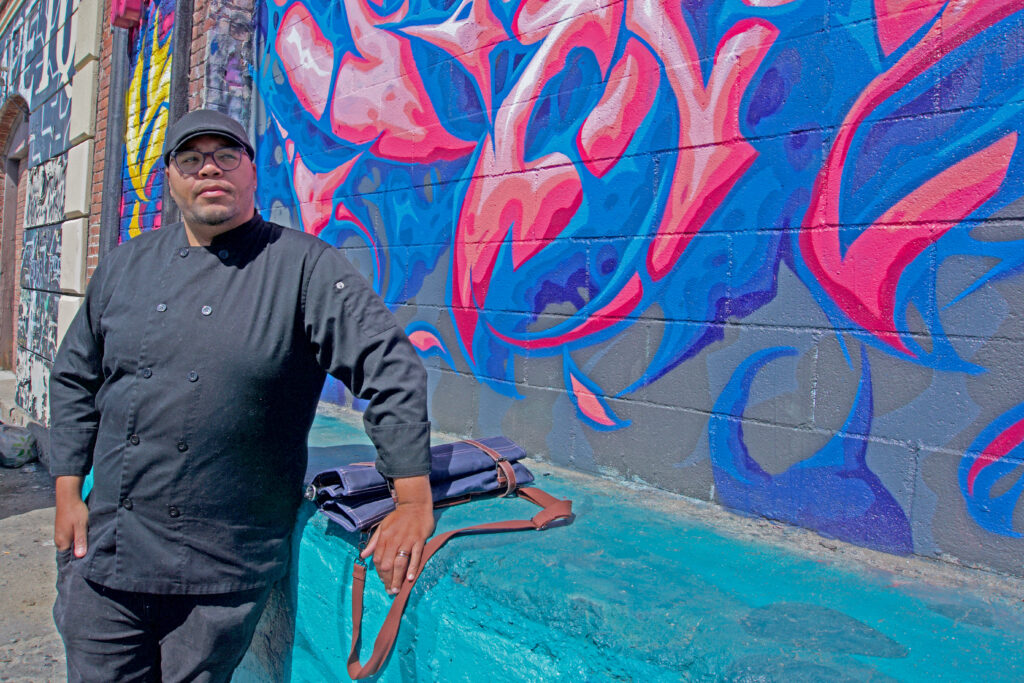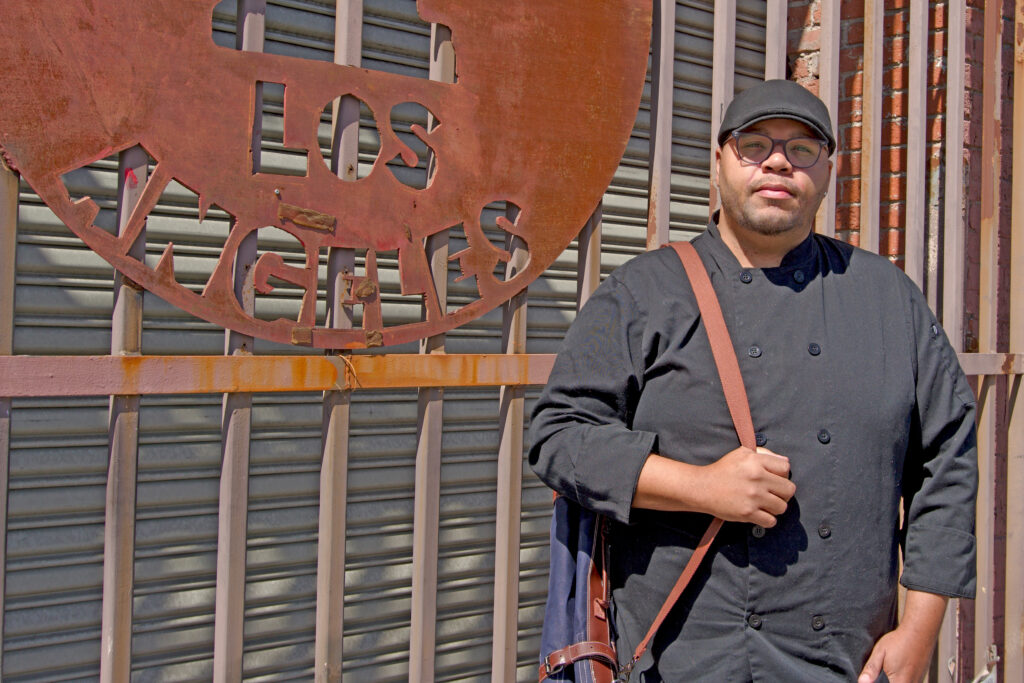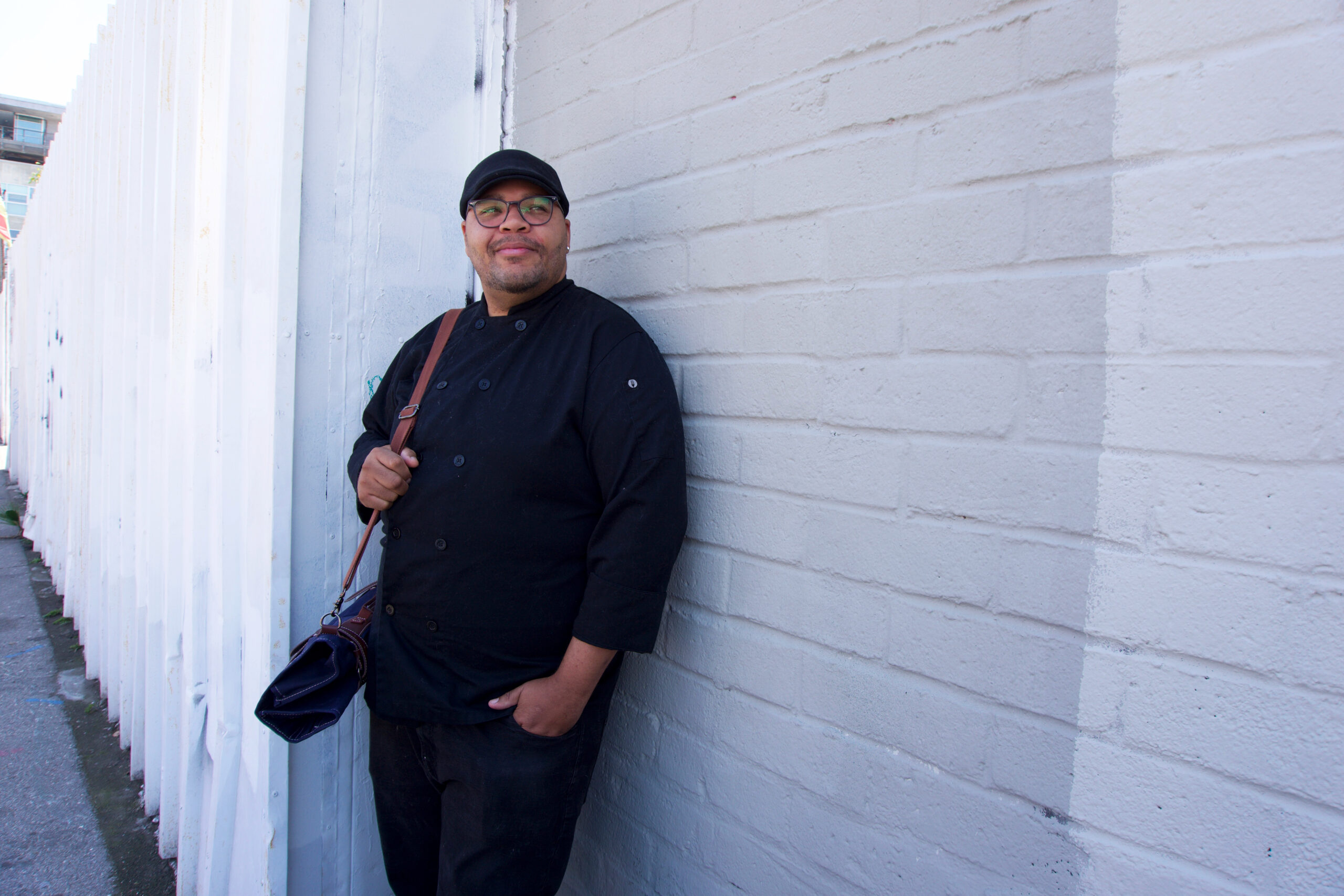For Los Angeles native Kenneth Anderson, food has been a part of his life and family since he was eight years old. Now, he’s on track to be the first pop-up chef to earn a Michelin star.
Clad in his signature newsboy hat and round glasses, Anderson remembers his first moments in the kitchen. “I was watching my mom cook something for dinner and I was like, ‘oh, I can do that.’ And she was like, ‘well then do it.’ That’s the kind of person my mom is,” he said.
Soon after Anderson started cooking, his grandmother got sick. Her eating habits were limited–no sugar and less salt. This forced Anderson to play with flavors as the “family cook”. Playing with flavors has become his passion.
In high school, Anderson continued to pursue this passion for flavors. He would cook often for clubs on campus–such as the Black Student Union, which he was also the president of. After catering for two hundred people at the age of 18, Anderson decided to finally gain formal culinary training.

Following culinary school, Anderson took a path distinct from most chefs. “I did take a very different path. I did not intern with restaurants. I did not intern with big name chefs or anything like that. I actually just started my own business and started catering shortly after that,” he said. “It’s been a whirlwind since.”
Anderson’s path has allowed him to explore all facets of the culinary industry–something very few chefs can say. “I’ve done the catering scene. I’ve done the in-home private chef thing. I’ve been a personal chef to some clients. I’ve done private event parties,” he stated. “I’ve been all over this spectrum and this world.”
In particular, he is most passionate about travel and pop-ups. In 2007 Anderson started Kreation Event Services, a creative pop-up company with dishes inspired from him travels around the world. Kreation’s “Dine In Series” creates an atmosphere where guests feel like they are eating in a friend’s home and have the opportunity to interact with the chefs as the dishes are served. Each dish is uniquely inspired by Anderson’s distinct travel history and personal background.
“I really love getting to experience people and their culture, and [it’s] interesting how other people live and how food impacts that,” Anderson said. “I bring those experiences for my travel back to doing pop ups, and I do like a five course dinner based on places that I travel to.”
Anderson recently traveled to Peru. Upon return, Kreation hosted a pop-up with a unique Peruvian menu, including a black tamale filled with queso fresco and topped with soy-braised short rib and tequila-pickled cherries. Anderson is also especially interested in caviar, implementing caviar into Baja Mexican dishes and experimenting with combining different flavors.
“I do want to become the first chef to win a Michelin star from a pop-up restaurant, so that’s where I’m most passionate,” he said. “I’ve come to find out in the last two years that there’s just a lot more money to be made, for me right now, at least, in the private world.”
According to Eater, private chefs make on average $10,000 more annually than that of restaurant chefs. Before working in the private sector, Anderson gained experience as an executive chef for three years at House of Music and Entertainment, a restaurant in Beverly Hills with many celebrity diners. He spent his efforts building his brand and his name in the entertainment industry, focusing more seriously on his social media. At the same time, he slowly began to build up his pop-up events, featuring many of these on his popular social media accounts. Producers began to reach out to him, landing him roles on “Supermarket Stakeout” and “Roku Best Bites.”
“I never really wanted to be on TV, I never thought that I was a TV person, and so other people, including some producers, started to tell me, ‘you actually do have the personality for TV,’” Anderson said. “I didn’t see it.”

Anderson always says his work “speaks for itself”. The quality and creativity of his dishes keep the culinary hierarchy from negatively impacting him. He appears to feel exempt from the notion of private chefs as not “real chefs”, as his prolific experience in the restaurant industry and culinary education has him well equipped for the food world. Before Anderson was a private chef, he focused on making connections in the industry, with Michelin star chefs in New York and Los Angeles.
“It depends on the personal and private chef to say if they are quote unquote real chefs, because there are a lot of chefs that popped up during COVID that I would also say truthfully are not ‘real chefs,’” he explained. “I still had training, I still had culinary experience and I’ve put in work for over twenty years now in catering and so forth and so on to be able to say that I have fundamental skills to call myself a chef.”
If Anderson believes skill is what is needed to be a “real chef”, what does “skill” actually entail? The ability to make and create quality dishes? Or rather something more technical, such as understanding French techniques and the proper inner workings of a kitchen? Regardless, Anderson’s confidence and success as a private chef and as a pop-up chef only strengthens his status as a “chef”–whatever that title may mean.
“I tell chefs often something that was told to me in culinary school, which is that it’s not necessarily that you make everything perfect. Of course, that’s the goal, but it’s when you make a mistake, can you fix it? It’s having the fundamental culinary knowledge and skills to be able to fix things, change things, and make things taste good even when you’ve messed up.”


